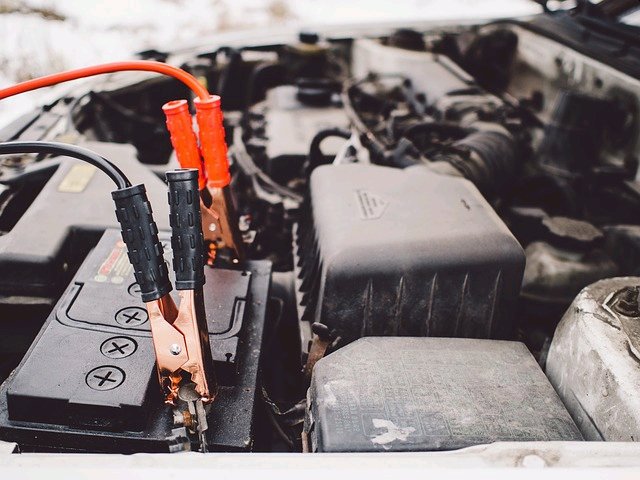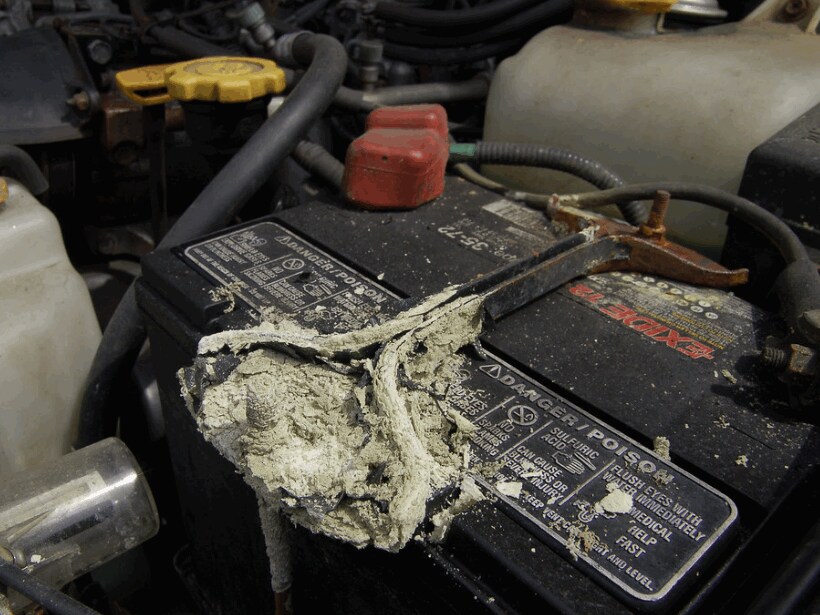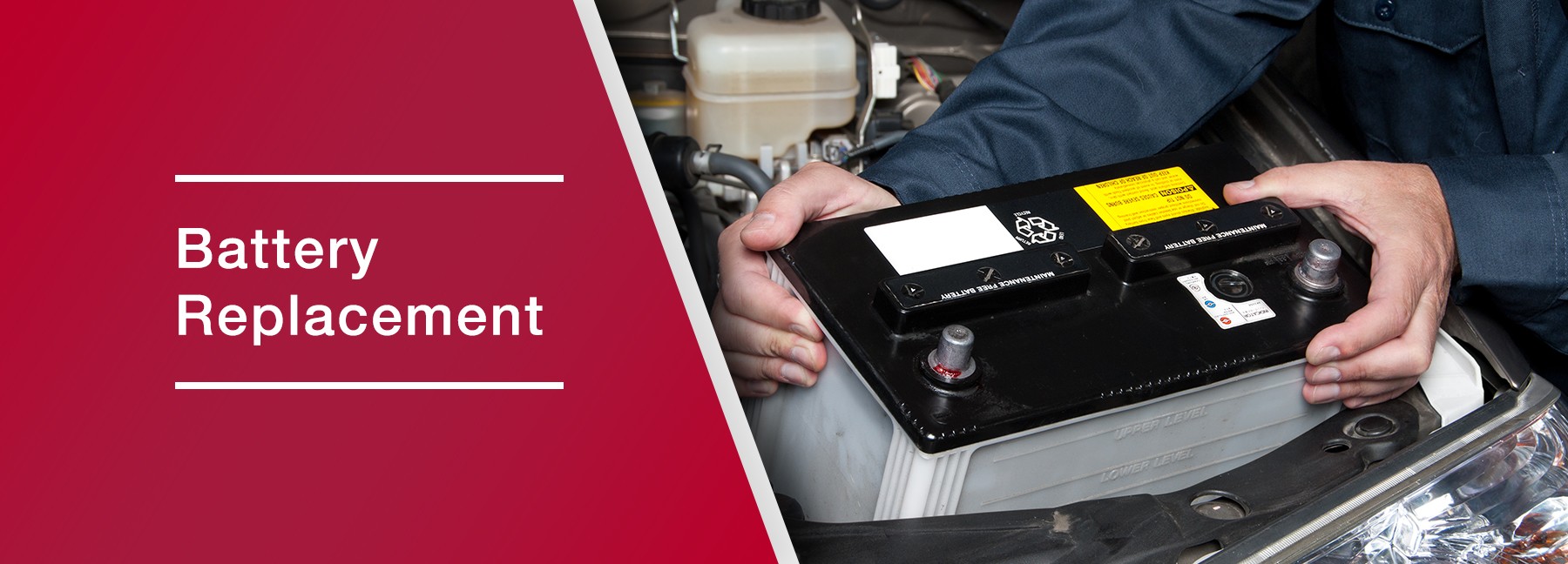Your car needs not only fuel and an
engine to get going - it also needs electricity. While the engine is what sets
the car in motion and keeps it moving for as long as you want, the energy for
the spark needed by the engine to start is supplied by the car battery - no car
can ever start without a functional battery that is able to supply the power
for the engine start.
How Does a Car Battery Work?
Batteries are devices that transform the chemical energy that they store in their cells into electricity through a chemical reaction. Each of the cells in the car battery contains two plates made from different materials, the most common combination being lead and lead dioxide. In the most common types of standard batteries, the plates are submerged in sulfuric acid that works as a catalyst, triggering reaction between the two plates when the driver activates the ignition. The chemical reaction becomes transformed into electricity that is channeled through the battery’s terminals to start the selected subsystems, such as the engine, the lights or the heating.The chemical reaction that produces the electricity is reversible, the battery charging continuously while the vehicle is in motion. Car batteries can also be charged with chargers connected to a standard power supply whenever needed, throughout the battery’s life.
Schedule Your Battery Service
Cold Weather Blues
Your car's battery is the heart of its electrical system and the chief cause of winter weather start-up woes. In cold weather, the battery loses about half its strength while the demands on the battery increase. Low temperatures reduce the battery's engine-cranking power, and by thickening the engine oil, they also make it more difficult for your engine to turn over. Cold fuel doesn't vaporize well, which adds to the difficulty.Winter driving conditions frequently require the use of lights, defrosters and wipers for extended periods while driving at slow speeds. This additional load requires the charging system to work properly so that it sufficiently charges the battery the next time you start your car's engine. For this reason, your service technician should also check your battery's charging system and voltage regulator, and inspect your vehicle's alternator to ensure that all components are operating properly.
Schedule Your Next Service
Many Types of Batteries
Car batteries come in various types – here are the most common ones:- SLI batteries – the abbreviation stands for Starting, Lighting and Ignition and denotes the most common and most affordable car battery types used today. These batteries have a shallow charge cycle, which means that they take short to deplete, being suitable for providing only short bursts of energy, but they also take short to recharge;
- Deep cycle batteries – these batteries are similar to SLI varieties, but they are designed for being deeply discharged on a regular basis and they are able to provide power for longer periods;
- Valve-regulated lead-acid batteries – these compact batteries do not require the car owner to check and to top up acid and water levels in the unit. These types cannot be serviced, car battery replacement being the only solution when VRLA batteries reach the end of their lifecycle, but they are very durable and reliable throughout their lifespan;
- Wet cell batteries – also called flooded batteries, these types are the most affordable, but they require regular checks and the electrolyte also needs to be topped regularly. The lifecycle of these batteries is also shorter than the lifespan offered by other types of batteries;
- Gel batteries – these types also use acid, but in gel form, thus preventing spills and damage caused by acid leaks. Gel batteries take longer to charge than other types, but their resistance to vibrations makes them an excellent solution for off-road vehicles;
- Spiral coil batteries – the plates in the cells of these batteries are rolled together and have a thin glass mat between them, the technology allowing for more starting power. Spiral coil batteries are more resistant to heat as well as to vibrations, therefore they are often used in heavy-duty vehicles.
The wide range of common car battery types might seem confusing, so the best way to determine the best product to buy for your car is to ask the assistant in the shop of choice to help you. Your Anchor Service Technician will help you make the best selection for your Nissan.
Make an Appointment

Why It's Important To Check Your Nissan Battery?
It is extremely important to have your car's battery checked by a Nissan-trained technician regularly. A battery check will include an examination of cable connections for cleanliness and tightness. Loose or corroded connections can dramatically diminish your car's starting power; and if the connections grow loose or crusty enough, they can shut off your car's electrical flow entirely and leave you thinking you have a dead battery.Battery Life Expectancy and Car Battery Maintenance
The life expectancy of a standard car battery is between 4-6 years, but there are many factors that will determine the period that you can use your battery for, one of the most important ones being proper care. The best way to ensure the health of your car battery is to take the car on longer trips to allow the battery to charge properly - using your car only to go shopping in the nearby store or using it only occasionally is a sure battery killer. Paying attention to climate conditions is also very important - even the sturdiest battery can freeze in extreme cold, so if you usually keep your vehicle outside and not in a garage, it is recommended to move the battery inside when the temperature outside drops below the temperature indicated in the battery's manual.

Battery inspections and cleaning are also important.
Check your Nissan battery regularly, clean any corrosion or oxide that you notice on the cable or anywhere on the battery exterior. Maintenance-free batteries don't need to be refilled with electrolyte and water, but if you use a conventional battery, you will need to check the level of the liquid in the battery cells and to top them up if necessary.It is a good idea to get your car battery tested every time you take the car to a mechanic for oil change - the specialist will hook a tester to the battery to check its condition, the test results providing you with useful information for determining whether you need to start preparing for battery replacement.
Service Center Hours
- Monday 8:00am - 6:00pm
- Tuesday 8:00am - 6:00pm
- Wednesday 8:00am - 6:00pm
- Thursday 8:00am - 6:00pm
- Friday 8:00am - 6:00pm
- Saturday 8:00am - 4:00pm
- Sunday Closed









